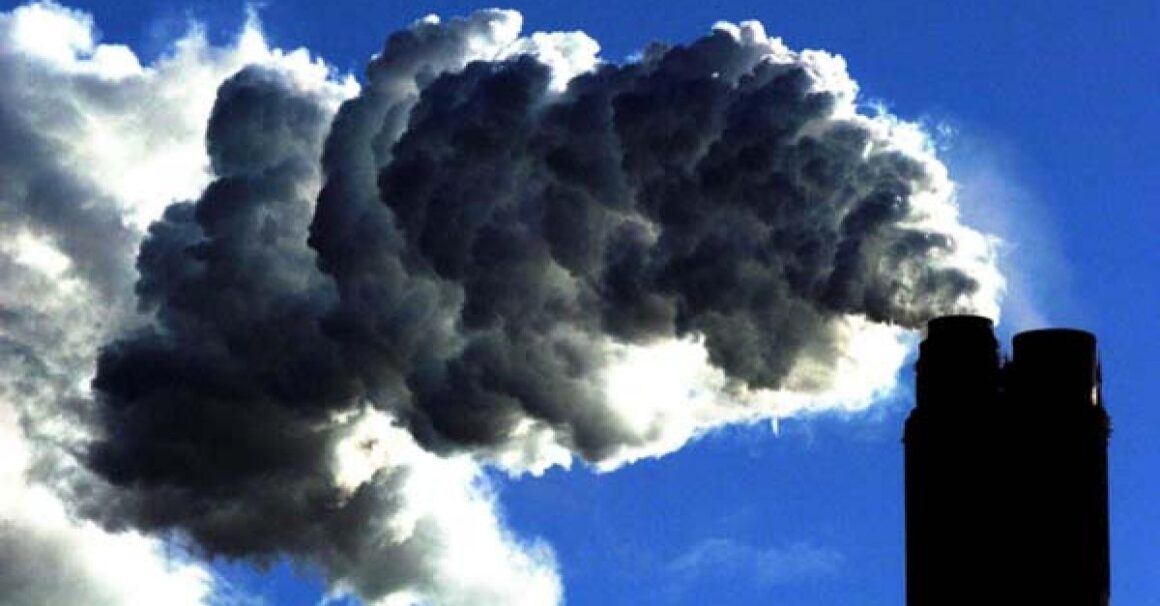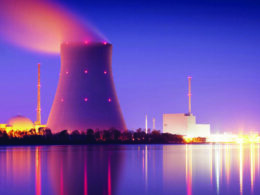By Cathal Curran
Ireland is to once again set to fall well short of its carbon emissions reduction target. The state has committed to a reduction of 4.8% in carbon emissions each year between 2021 and 2025, with an 8.3% reduction being the goal in the remaining years of the decade.
Estimates for 2021 emissions reveal that they actually fell by between 1.8% and 3.4%, well below the meagre targets and this despite the fact that 2021 featured multiple lockdowns which would have resulted in a natural emissions reduction due to people not commuting to work, not going on holidays etc.
Once again the coalition government, including the Green Party, is proving that it is all climate talk but no climate action.
Polluter interests prioritised
In the majority of high-polluting sectors, emissions are up from the previous year. Each atom of carbon above the target emitted into our atmosphere is a result of Irish government policy.
Electricity generation produced 20% more emissions in 2021 than in the previous year, despite the many months of stay-at-home orders. It is undoubted that the increase of data centres in this country has contributed a lot to this increase in power consumption. It was recently revealed that electricity consumption by data centres has tripled over the last six years and now consumes more power than every rural home put together!
The Irish state has abandoned its climate goals to appease private corporate entities. Data centres do not provide much meaningful, long-term employment to the regions they are in. For sure, some data infrastructure is necessary for the continuing functioning of technology we all rely on but the majority of data stored by these servers, by most websites, is personal information used exclusively to advertise products to individual persons.
Criminal government inaction
Transport emissions were also up 6% on the previous year. This is also the result and culmination of decades of government policy that encouraged and incentivised private car ownership over any decent public transport infrastructure.
The majority of people in this country do not have access to any form of public transport, and the majority of those who do would be unlikely to describe their access as easy and reliable. The government is going all in on electric cars which, while not as bad for the environment as diesel spluttering cars, will still require and lead to an increase in electricity consumption.
Agriculture emissions have also risen year on year. Although exact figures are not provided, many farmers have shifted from beef farming to dairy farming. Dairy cows tend to be bigger and produce more waste, require more feed and fertilisers and are generally farmed more intensively so usually have a worse environmental impact.
Again, this is a deliberate choice made by the government which provides subsidies for dairy farmers to sell milk powder to China, to sell yoghurts to Russia and to sell butter to America, amongst others.
A capitalist catastrophe
These failures come in the context of the latest IPCC report which stated that “GHG (Greenhouse Gases) emissions are projected to rise beyond 2025, leading to a median global warming of 3.2 [2.2 to 3.5] °C by 2100.” Scientists have repeatedly stated that a rise of anything over 1.5 °C would be absolutely catastrophic to the prospects of life on earth, and according to the IPCC we are on track for more than double that.
This report, approved by governments from all over the world, if taken to its logical conclusion — which it stops short of doing — proves that we need complete system overhaul in a relatively tiny matter of time. Yet the greed of capitalists would never allow their system, which protects their profits, privileges and power, to be touched — even if it means the survival of our species. The conservatism of the establishment parties, such as those in Ireland, stems from this logic too.
Any politician or organisation that refuses to explicitly name capitalism as the problem does not want to seriously tackle climate change.
The fight is on
Peter Kalmus, NASA scientist, summarises the report as follows: “We know what to do, we know how to do it — it requires taking toys away from the rich, and world leaders aren’t doing it.” The rich and powerful feel that no matter how bad climate change gets, that they will be sheltered from it, and they may well be right.
In that context they are happy to continue living their lives in luxury and watch the world burn around them. We need an engaged, militant and organised working class — the vast majority of the planet — to take power into our own hands, through which we can organise society around the interests of people rather than the profits of a select few. The future of the planet literally rests on it.











